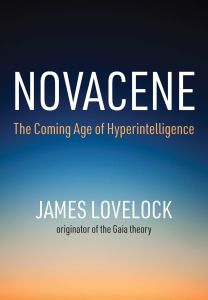Rejoignez getAbstract pour lire le résumé !

Rejoignez getAbstract pour lire le résumé !
James Lovelock
Novacene
The Coming Age of Hyperintelligence
MIT Press, 2019
Aperçu
The Novacene era will unite human and artificial intelligence.
Recommendation
James Lovelock introduced the Gaia hypothesis in the 1970s. Gaia, he argues, is a living system that connects all things and maintains Earth’s temperate climate. Humans disrupted this delicate barometer with the “age of fire” – the Anthropocene – by transforming the planet on a massive scale. The Novacene, a new era in which humans and artificial intelligence will work together to preserve life on Earth, now begins. Expansive and eloquent, Lovelock – at age 100 – ponders his deep love for all existing life, and offers hope for the age to come.
Summary
About the Author
Fellow of the Royal Society and Companion of Honour James Lovelock, is originator of the Gaia hypothesis – now Gaia theory. His books include Gaia: A New Look at Life on Earth; The Revenge of Gaia; The Vanishing Face of Gaia; and A Rough Ride to the Future.




















Comment on this summary